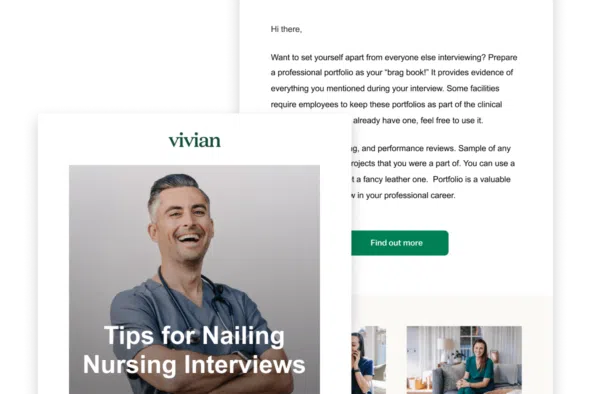New York City (NYC) is a popular choice among travel nurses and allied health professionals seeking lucrative employment opportunities in one of the most exciting cities in the nation. Its slew of entertainment options, shopping and dining experiences, cultural offerings and iconic landmarks often attract healthcare professionals from all specialties. But all the sights and sounds of the Big Apple come at a steep price, with housing costs leading the way. A new law in the city could limit short-term housing options, but how much will it impact those taking NYC travel nursing jobs or allied health positions?
New York City by the Numbers
While NYC is uber-popular for all its attractions, it’s also one of the most expensive cities in the nation to live in, even temporarily. Housing is often considered scarce and notoriously high in cost.
Comparing all 50 states, the District of Columbia and Puerto Rico, New York had the fifth-highest cost of living in the second quarter of 2023, per the Missouri Economic Research and Information Center. New York State had an overall index nearly 27% higher than the national average, with housing costs nearly 76% higher. On a local level, New York City’s overall cost of living is almost 69% above the national norm, with housing costs more than double, per Sperling’s Best Places.
According to the September 2023 NYC Rent Report from Apartment List, NYC’s overall median rent was $2,236 per month, nearly a 1% increase over last month. The city’s growth in rental rates has kept pace with the state average but slightly outpaced the national average. During this month, one-bedroom rentals averaged $2,137, while two-bedrooms were $2,256. However, these averages are for long-term rentals. Short-term rentals (STRs) typically cost much more and can be more challenging to find.
Helping offset the high cost of housing, the average pay rate for travel nurses in New York City was $2,445 weekly in early September 2023, per Vivian Health’s salary data. While this amount was about 1% less than the state average, it was higher than the national average by 11%. Comparatively, travel allied health salaries in NYC averaged $2,573 per week during this same period. Allied healthcare professionals earned about 3% more than the state average but only 9% more than the national average.
Despite the higher living costs, New York City remains a popular location for travelers, where healthcare ranks among the leading employment sectors. Top NYC healthcare employers had nearly 31,000 travel allied health jobs in all specialties combined available on September 13, 2023, including more than 17,500 posted over the previous week. There were almost 97,000 travel nursing job openings on the same date, including over 55,600 new jobs posted over the last week.
Where Are All These Travelers Going to Stay?

Travel healthcare professionals typically have two options for finding temporary housing. They can either take agency-provided housing or secure their own accommodations using tax-free stipends. Housing of all types is already pretty scarce throughout much of NYC. For short rental needs, travelers often utilize short-term booking platforms like Airbnb, Vrbo and similar services. However, New York’s new stricter short-term housing rules could make it more difficult for travel nurses and allied health professionals to find adequate housing during their contracts.
Audra Williams is a Critical Care Registered Nurse who took a contract in New York City at Weill Cornel Medical Center to help in the Intensive Care Unit during the height of the COVID-19 pandemic. She was there for three months in 2020 and knows first-hand how hard finding housing in the city can be.
“I had a difficult time finding short-term housing that was affordable plus in a good location,” said Williams. “I actually tapped into family and their connections on a forum to find my housing when I went. It was much better that route, and the connection of people made the experience awesome.”
Now may be an ideal time to rethink taking that tempting generous housing stipend and opt for agency-provided accommodations. For example, Host Healthcare boasts deluxe private housing and Medical Solutions offers private, fully furnished, pet-friendly housing in many of their NYC job postings. While your take-home pay will be lower without the tax-free housing stipends, you typically still earn significantly more than staff healthcare professionals (HCPs) in comparable positions. You also avoid the headache of trying to find decent, affordable housing with potentially limited options available.
RELATED: How Travel Nurse Housing Stipends Work
How the New Short-Term Housing Law Works
New York City adopted Local Law 18 on January 9, 2022, but the initial phase of enforcement didn’t go into effect until September 5, 2023. While Airbnb tried to block the new law through a court challenge, the lawsuit was thrown out in August. The new law, also known as the Short-Term Rental Registration Law, expands an existing short-term rental law that wasn’t being followed and was difficult to enforce.
In NYC, only Class B multiple dwellings that normally provide temporary housing legally qualify for short-term occupancies. These dwellings include hotels, boarding houses, rooming houses, school dormitories and similar lodgings. All other dwellings, deemed Class A, can’t legally offer short-term rentals unless they meet specific criteria.
Under the existing short-term rental law, hosts from any Class A dwelling can’t rent out their entire apartment or home for less than 30 days, even if they own the dwelling, unless they remain in the same home or apartment as the “guest.” Furthermore, they can’t have more than two guests staying at any time.
Local Law 18 takes the original law a step further by requiring short-term rental hosts to register with the NYC Office of Special Enforcement (OSE). They must pay a non-refundable application fee of $145 and receive approval to provide housing for less than 30 days. Registration makes it easier for the city to enforce the rental law, and hosts risk a stiff penalty of up to $5,000 without proper approval and registration.
The Registration Law also prohibits booking service platforms from processing transactions from hosts with unregistered STRs. As of September 5, the OSE has been collaborating with short-term booking platforms to ensure they’re utilizing the city’s verification system to prevent processing unverified transactions. Although the new law allows short-term rental platforms to continue operating in NYC, the rules are strict enough that various news outlets have noted that Airbnb considers it a “de facto ban.”
A separate piece of the new law could make Airbnbs even more scarce. It allows landlords to ban residents within entire buildings from renting out their residences on short-term platforms. As of July 2023, almost 9,000 buildings across the city were already on this list.
Airbnb Listings Expected to Drop Drastically

According to Inside Airbnb, a platform that tracks listings on Airbnb, the site’s New York City listings totaled 39,453 on September 5, 2023, the same day the new short-term rental law went into force. Of these, just under 56% were entire homes or apartments. NYC officials expect to see 1,000s of rentals drop from the popular platform now that the new law is in effect.
Booking platforms must check that the rental host has an approved application on file with the city before accepting a transaction. Under the new law, the housing platform could incur fines of up to $1,500 per transaction if a rental was found to be illegal. According to the New York Times, city officials estimate that nearly 11,000 of Airbnb’s listings in March 2023 were unlawful STRs.
In August, Airbnb estimated that nearly 15,000 hosts had active listings for short-term rentals throughout NYC on its platform. Per the New York Times, the city had only received about 3,250 applications, with a scant 257 approved, as of August 28. Airbnb indicated that some listings would automatically convert to long-term rentals while others would be deactivated.
Airbnb has taken other steps to comply with the new law. It’s canceling and refunding reservations made for unregistered rentals beginning December 2, 2023, but allowing existing rentals to remain in effect until December 1 to help defray the impact on both hosts and guests. However, on August 14, Airbnb began blocking any new bookings for unregistered accommodations for stays beyond September 5.
Short-Term Housing Impact on Travel Nurses
With enforcement happening now, the full impact of New York City’s new short-term housing law on travel nurses and HCPs isn’t yet fully known. Because NYC defines short-term rentals as those lasting for less than 30 days, it may not have as significant an effect on healthcare travelers as some might anticipate.
RELATED: Travel Nurse Housing: Tips and Tricks
Per Inside Airbnb, the average number of nights booked on the platform was 87, nearly matching a typical 13-week travel contract. Since these contracts are well over 30 days, they wouldn’t legally be considered short-term rentals. However, if 1,000s of listings drop from Airbnb because they need to qualify under the new short-term rental law, it could still lead to fewer housing options for longer stays.
Whatever the impact, some travel nurses, like Wiliams, discovered that these platforms aren’t always that helpful in expensive cities like New York.
“I tried Airbnb and Vrbo,” she said. “The prices were just so high, and talking with the owners wasn’t easy. I needed something quicker. The forum and directly connecting to the owner that route was much easier and personable. I still talk to that family to this day.”
Cracking Down on STRs Becoming the Norm
New York City isn’t the only city looking to cut down on short-term rentals due to a perceived increase in noisy parties, garbage and crime. Other cities also have concerns over landlords converting housing to STRs to earn higher rental rates, making local housing even more expensive and difficult to secure by full-time residents. Popular cities like Atlanta, Chattanooga, Fort Worth, Memphis, Oahu and Palm Springs, among others, have voted in new legislation, increased taxes or paused applications to slow the short-term rental enterprise.
Travel nurses and other HCPs taking housing stipends and securing their own accommodations should always be aware of local rental laws that could impact whether a place to stay will be readily available before they pack their bags. Accepting a contract but then not being able to locate suitable housing could spell disaster.
Vivian Health is helping over 1.4 million healthcare professionals find their next staff or travel jobs in cities nationwide. It’s your future. Let Vivian help you find it!









